There I was, perched in a chair at my college, indifferent to existence, without direction. I wondered how I could achieve happiness. By having a lot of money? By putting my faith in God and the Bible? By following the wishes of my parents? I wondered if I should spend my life trying to make others happy or focus on my short-term pleasures. It turns out neither of these was the right answer.
In thinking about this, I was trying to discern the right—and wrong—way to behave in life. The problem was I could not define what “right” really meant. It was especially difficult for me, having grown up in Peru, a country heavily influenced by Catholicism. The Catholic Church said that God would judge our behavior according to Catholic morals and send us to heaven if we were faithful or hell if we weren’t. I obeyed because I was afraid. I never received rational explanations for following these rules, only arbitrary commandments. I didn’t want to disappoint my parents, so I prayed in faith.
Another lesson I had been taught about morality was that putting others before oneself was good. When I was a kid, I gave away my cookies until I ran out of them. I thought I was doing a good deed because I placed the interests of others above my own.
I was always taught that happiness is achieved by making others happy, living for others, and being selfless. But for some reason, helping others didn’t bring me joy. I knew something was wrong; I felt powerless; I could not identify the cause. I went on with my life, trying to ignore what I felt. Still, I could not get two questions out of my mind: “What is right? What is truth?¨
One day, I took a debate course to improve my oratory and develop my critical thinking. In this course, I learned how to argue, but I didn’t learn what was right and wrong. I realized I needed principles to back up my arguments from a moral perspective. For this reason, I looked for thinkers who pointed toward fundamental truths. I searched for “Freedom” on Google because I saw a connection between freedom and the right thing to do.
Then I searched on YouTube. It suggested a video of Milton Friedman, where he talked about how free markets make everyone better off, but he didn’t say why being better off was a good thing. He didn’t explain why pursuing wealth and having a better life is good. Then I stumbled across another black-and-white video where a woman said, “Man should regard reason as an absolute. The highest moral purpose of his life is to achieve his happiness by following his own rational self-interest.” She was promoting being selfish. I learned that her name was Ayn Rand.
She began to answer some of my most profound questions, and her answers contradicted everything I had learned in childhood. As the interview progressed, I was stunned by the clarity and precision of her words and the confidence she conveyed. I realized that the problem of right and wrong was not a political-economic one but something more fundamental, something essential: Philosophy.
I had awakened from a dream, and I had discovered reason. Shortly after, I read my first Ayn Rand book— The Virtue of Selfishness. In it, she explained that it is morally good to live one’s life in pursuit of one’s highest values. Unlike the Catholics and even Friedman, she didn’t just proclaim it true. She provided lengthy justifications for her conclusions, built up from the most basic observations about reality. There was a morality based on fact.
Once I began understanding this, it completely shifted my thoughts about life. I no longer had to pretend to hold the Catholic values I had been raised with—that to be good is to sacrifice for other people.
Instead, I realized that to be good is to live life to the fullest. I learned that altruism, the moral code that enshrines sacrificing one’s values for others, does not mean generosity but self-denial, self-sacrifice, and self-destruction. Altruism is based on the idea that service to others justifies one’s existence. On the other hand, Objectivist morality enabled me to understand what was right and wrong. It provided a moral code that says that the point of life is not to suffer and die but to live and enjoy oneself.
That meeting with Ayn Rand’s ideas marked a milestone and started a huge transformation in my life. I now understood the importance of philosophy, and I had discovered Objectivism, Rand’s philosophy for living on earth.
Understanding the principles of Objectivism enabled me to live a much happier life. I invite you to check them out yourself, and I’m sure they’ll transform your life like they have mine.
Thanks, Ayn, for your guidance and your good premises.

